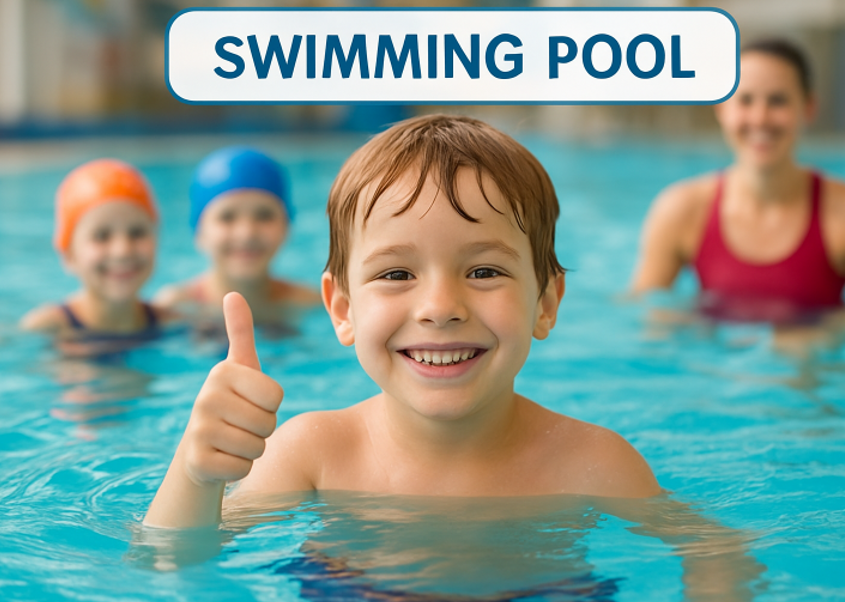How Learning to Swim Boosts Confidence and Lifelong Wellness in Kids
Swimming is a crucial life skill that not only enhances a child’s physical and emotional well-being but also fosters healthy habits and social growth. Early swimming lessons help children develop confidence in aquatic safety, promoting healthy habits and resilience. Investing in swimming lessons builds lifelong resilience and confidence for children, families, and communities. The journey to confident swimming helps children realize their potential, fosters independence and trust, and promotes lifelong wellness and security. Structured swim programs provide a safe space for children to thrive, supporting physical, cognitive, emotional, and social growth that lasts a lifetime.
The Science Behind Swimming and Childhood Development
Numerous studies highlight how swimming supports children’s brain development and coordination. Water activities engage the whole body and brain, requiring children to focus on movement, rhythm, and breath. Swimming improves mood and cognitive function, making it effective for growing minds. Kids who swim regularly show stronger concentration and problem-solving skills. Finding programs like kids swimming lessons near me helps parents ensure consistent practice, while learning new strokes, managing buoyancy, and responding to feedback develop adaptability and resilience, laying a foundation for long-term success.
Building Water Confidence: Overcoming Fear and Fostering Independence
Many children feel fear or hesitation when first introduced to water, but professional swim lessons gently guide them toward comfort and competence. Instructors use play, repetition, and praise to help each child progress at their own pace. Over time, conquering pool fears increases confidence in other life areas, as children realize they can face and overcome the unknown. Gradual exposure, support, and mastering basic skills like floating and breathing build a foundation for children to feel at ease in water. As kids achieve small victories, their self-esteem and independence grow in and out of the pool.
See also: How to Practically Apply Umrah Learnings to Your Routine Life?
Lifelong Wellness: Physical Benefits and Healthy Habits
Swimming is a full-body workout that improves cardiovascular endurance, muscle strength, and flexibility. Water provides gentle resistance that is easy on joints yet effective for core stability and coordination. Making swimming part of a child’s routine boosts overall fitness and lays the foundation for healthy habits into adulthood. Starting regular exercise early has lasting benefits, as active children tend to maintain positive behaviors, lowering health risks. Swimming is a lifelong skill that supports recreation and wellness at all ages.
Friendship and Teamwork: The Social Side of Swimming
Swim classes and team activities help kids make friends, cooperate, and communicate. Working with peers on goals—like passing a swim test or relay races—teaches teamwork and respect. Examples include high-fives after dives and cheers at meets, showing children the importance of encouragement, empathy, and celebrating progress. These skills benefit school and community life.
Water Safety Basics: Skills Every Child Needs
Fundamental water safety is essential in swimming lessons. Children learn to identify safe conditions, follow pool rules, and respond in emergencies. Skills like floating, treading water, and safe entry/exit can prevent tragedies. Water-safe children bring peace of mind to families and promote a safety-focused community. Early water literacy helps children enjoy pools, lakes, and beaches safely throughout their lives.
Encouraging Progress: Parental Support and Growth Mindset
Parents and caregivers are crucial in a child’s swimming development. Encouraging regular lessons, giving positive feedback, and celebrating small wins motivate perseverance through setbacks. Goal-setting and open talks about fears foster resilience, benefiting all areas of life. Adopting a growth mindset—valuing effort over perfection—encourages kids to try new challenges and embrace feedback, supporting both swim progress and lifelong self-improvement.
The Bigger Picture: Building Healthier, Happier Communities
Investing in children’s swimming lessons has a ripple effect beyond families. Confident, water-literate kids lead to safer public spaces, foster responsibility, and set positive examples. Over time, communities that embrace swimming and safety become healthier, active, and resilient. Viewing swimming lessons as an investment in lifelong confidence benefits not only swimmers but also empowers individuals and strengthens neighborhoods. Encouraging all children to learn this vital skill can transform future generations.






